
Maximizing the Value of Your Healthcare Business Before Selling
Selling a healthcare business is a significant decision, and one that requires strategic preparation to ensure you receive the best possible price. Whether you own a medical practice, a dental clinic, an assisted living facility, or any other healthcare-related business, buyers are looking for organizations that are profitable, well-managed, and that ideally are capable of running smoothly without the current owner’s direct involvement.
The process of selling a healthcare business goes beyond simply finding a buyer. It requires careful planning to optimize profitability, reduce operational risks, and present the business in the best possible light. By taking proactive steps in the months or even years leading up to a sale, you can significantly increase its value and make it more attractive to potential buyers.
Financial Optimization: Clean Books and Profitable Operations
The first thing a buyer will scrutinize is your financial records. A business that demonstrates steady revenue growth, strong profit margins, and well-organized financial statements will be far more appealing than one with inconsistencies or unexplained losses.
If your bookkeeping has been inconsistent, now is the time to get it in order. Buyers will expect to see at least three years of accurate financial statements, including tax returns, profit and loss statements, and balance sheets. Any unusual expenses or owner-specific costs should be properly categorized so buyers can see the true earning potential of the business.
Improving profitability is also crucial. If there are areas where costs can be reduced without sacrificing patient care, addressing them will make your business more attractive. Negotiating better supplier contracts, optimizing staff scheduling, and reducing unnecessary overhead can all contribute to a healthier bottom line.
Building a Strong and Independent Business Model
A business that is overly dependent on its current owner can be a red flag for buyers. If the business relies heavily on your personal relationships with patients, referring doctors, or key suppliers, transitioning to new ownership may be difficult.
One way to mitigate this risk is by establishing strong systems and procedures that ensure the business operates efficiently regardless of who is in charge. Standardized processes for patient care, billing, marketing, and staff management can add significant value. If you haven’t already, consider implementing a well-documented operations manual so a new owner can step in with minimal disruption.
Additionally, ensuring that your staff are well-trained and capable of running day-to-day operations without your constant oversight can make your business more appealing. A strong management team can be a major selling point, as it reassures buyers that the business will continue to run smoothly after the sale.
Enhancing Revenue Streams and Diversifying Services
Buyers are drawn to businesses with stable and diversified revenue sources. If your business relies heavily on a single service or a small group of clients, it may be seen as a risky investment. Expanding your service offerings or targeting a broader patient base can make your business more attractive.
For example, a medical practice that primarily serves a specific demographic may benefit from adding specialized services that appeal to a wider audience. A dental clinic that generates most of its revenue from basic check-ups might increase its value by offering cosmetic procedures or orthodontic services. Similarly, an assisted living facility could boost its appeal by incorporating new wellness programs or specialized care options.
Recurring revenue models, such as membership-based services or long-term patient care contracts, can also add significant value. If your business has predictable, ongoing revenue streams, it will be more attractive to buyers looking for a stable investment.
Branding and Reputation: Making Your Business More Marketable
A strong brand and positive reputation can greatly enhance the perceived value of your business. Buyers are more likely to pay a premium for a business with a well-established name, a loyal patient base, and strong online reviews.
If you haven’t already, invest in a professional website and maintain active social media profiles to showcase your expertise and services. Ensuring that your online reputation is strong by encouraging satisfied patients to leave positive reviews can also make a significant difference in attracting buyers.
Community involvement and professional affiliations can further enhance your credibility. If your business is associated with reputable industry organizations, or if you regularly contribute to healthcare publications or events, these factors can add to its perceived value.
Addressing Compliance and Legal Considerations
The healthcare industry is highly regulated, and compliance issues can become major roadblocks during the sale process. Before listing your business for sale, ensure that all necessary licenses, certifications, and permits are up to date. Any unresolved legal or compliance issues should be addressed well in advance to prevent delays or deal cancellations.
Buyers will also be concerned about patient confidentiality and data security. If your business handles sensitive patient information, ensuring compliance with HIPAA or other relevant regulations is crucial. Having a clear transition plan for patient records and ensuring your electronic medical records (EMR) system is well-managed can provide buyers with confidence that they won’t face legal issues after taking over.
Setting the Stage for a Smooth Transition
The transition process can make or break a deal. Buyers want assurance that they will be able to take over operations seamlessly without losing customers or staff. A well-thought-out transition plan that includes a training period, staff retention strategies, and potential consulting support from the seller can make your business far more appealing.
It’s also important to be realistic about the sale timeline. Selling a healthcare business can take several months to a year, depending on market conditions and the complexity of the transaction. Preparing early and positioning your business as a turnkey operation will not only attract more buyers but can also help you secure a higher sale price.
Final Thoughts: Take Action Now to Maximize Value
Maximizing the value of your healthcare business before selling requires strategic planning, financial optimization, and operational improvements. By taking the time to clean up your financials, build a business that can operate independently, diversify revenue streams, strengthen your brand, and ensure regulatory compliance, you can position yourself for a smoother and more profitable sale.
If you’re considering selling your healthcare business and want expert guidance on how to maximize its value, we can help. With years of experience in brokering successful medical business sales, we can provide you with a clear strategy to attract the right buyers and achieve the best possible outcome.
Contact us today for a confidential consultation and take the first step toward a successful sale.
